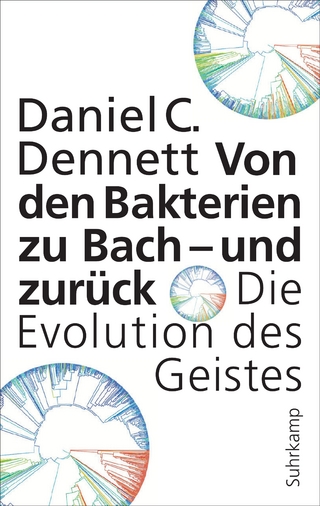
After Certainty
A History of Our Epistemic Ideals and Illusions
Seiten
2019
Oxford University Press (Verlag)
978-0-19-885218-6 (ISBN)
Oxford University Press (Verlag)
978-0-19-885218-6 (ISBN)
After Certainty offers a reconstruction of the history of epistemology, understood as a series of changing expectations about the cognitive ideal that we might hope to achieve in this world. Pasnau ranges widely over philosophy from Aristotle to the 17th century, and examines in some detail the rise of science as an autonomous discipline.
No part of philosophy is as disconnected from its history as is epistemology. After Certainty offers a reconstruction of that history, understood as a series of changing expectations about the cognitive ideal that beings such as us might hope to achieve in a world such as this. The story begins with Aristotle and then looks at how his epistemic program was developed through later antiquity and into the Middle Ages, before being dramatically reformulated in the seventeenth century. In watching these debates unfold over the centuries, one sees why epistemology has traditionally been embedded within a much larger sphere of concerns about human nature and the reality of the world we live in. It ultimately becomes clear why epistemology today has become a much narrower and specialized field, concerned with the conditions under which it is true to say, that someone knows something.
Based on a series of lectures given at Oxford University, Robert Pasnau's book ranges widely over the history of philosophy, and examines in some detail the rise of science as an autonomous discipline. Ultimately Pasnau argues that we may have no good reasons to suppose ourselves capable of achieving even the most minimal standards for knowledge, and the final chapter concludes with a discussion of faith and hope.
No part of philosophy is as disconnected from its history as is epistemology. After Certainty offers a reconstruction of that history, understood as a series of changing expectations about the cognitive ideal that beings such as us might hope to achieve in a world such as this. The story begins with Aristotle and then looks at how his epistemic program was developed through later antiquity and into the Middle Ages, before being dramatically reformulated in the seventeenth century. In watching these debates unfold over the centuries, one sees why epistemology has traditionally been embedded within a much larger sphere of concerns about human nature and the reality of the world we live in. It ultimately becomes clear why epistemology today has become a much narrower and specialized field, concerned with the conditions under which it is true to say, that someone knows something.
Based on a series of lectures given at Oxford University, Robert Pasnau's book ranges widely over the history of philosophy, and examines in some detail the rise of science as an autonomous discipline. Ultimately Pasnau argues that we may have no good reasons to suppose ourselves capable of achieving even the most minimal standards for knowledge, and the final chapter concludes with a discussion of faith and hope.
Robert Pasnau is professor of philosophy at the University of Colorado Boulder. He is the founding editor of Oxford Studies in Medieval Philosophy and the author of many scholarly books and articles on the history of philosophy and its contemporary manifestations. His 2011 book Metaphysical Themes 1274-1671 traced the breakdown of Aristotelianism and the rise of early modern metaphysics. In 2014 he gave the Isaiah Berlin Lectures at Oxford University, which now appear as After Certainty.
Lecture One. The Epistemic Ideal
Lecture Two. Evident Certainties
Lecture Three. The Sensory Domain
Lecture Four. Ideas and Illusions
Lecture Five. The Privileged Now
Lecture Six. Deception and Hope
| Erscheinungsdatum | 22.11.2019 |
|---|---|
| Verlagsort | Oxford |
| Sprache | englisch |
| Maße | 171 x 246 mm |
| Gewicht | 684 g |
| Themenwelt | Geisteswissenschaften ► Philosophie ► Erkenntnistheorie / Wissenschaftstheorie |
| Geisteswissenschaften ► Philosophie ► Geschichte der Philosophie | |
| Geisteswissenschaften ► Philosophie ► Philosophie der Neuzeit | |
| ISBN-10 | 0-19-885218-5 / 0198852185 |
| ISBN-13 | 978-0-19-885218-6 / 9780198852186 |
| Zustand | Neuware |
| Informationen gemäß Produktsicherheitsverordnung (GPSR) | |
| Haben Sie eine Frage zum Produkt? |
Mehr entdecken
aus dem Bereich
aus dem Bereich
Buch | Softcover (2023)
Reclam, Philipp (Verlag)
7,00 €
die Grundlegung der modernen Philosophie
Buch | Softcover (2023)
C.H.Beck (Verlag)
18,00 €
die Evolution des Geistes
Buch | Softcover (2025)
Suhrkamp (Verlag)
30,00 €
![Was heißt Denken?. Vorlesung Wintersemester 1951/52. [Was bedeutet das alles?] - Martin Heidegger](/media/113619842)

